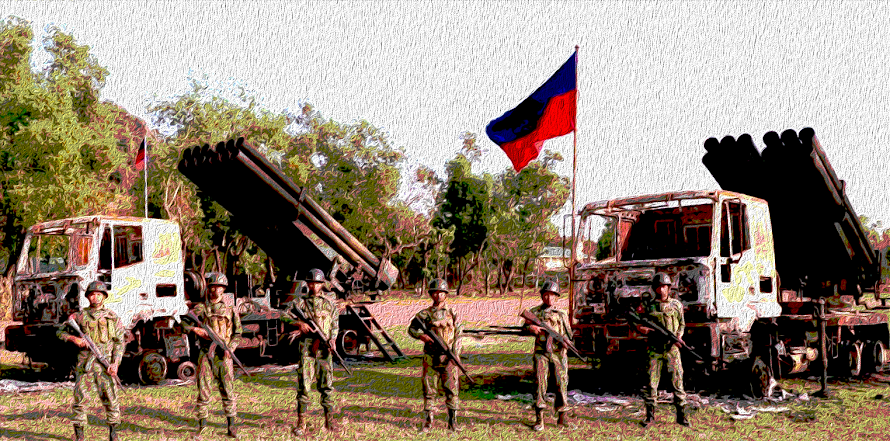Myanmar Spring Chronicle February 15th by MoeMaKa Media:
Military Council Faces Setbacks in Rakhine State as Residents Seek Escape Amidst Escalating Conflict
After more than three months of renewed conflict in Rakhine State, the Military Council Army finds itself at a disadvantage, relinquishing control over large parts of the northern region. Border guard posts along the Bangladesh border are falling to advancing forces, raising questions about the defense of the Rakhine capital, Sittwe, as the military council retreats from the north. While the conflict has reached islands like Ramree and Kyaukphyu, areas such as Thandwe, Toungup, and the eastern military headquarters of Ann remain unaffected for now.
The Arakan Army (AA), previously engaged in northern Shan State, resumed hostilities in Rakhine Land in mid-November as part of Operation 1027. Having terminated a ceasefire agreed upon after two prior conflicts between 2017 and 2022, the AA is committed to expelling military council forces from Rakhine State.
In response to the AA’s intensified attacks, the military council opted for a multi-front strategy, engaging in conflicts in northern Shan, southern Shan, Upper Sagaing, Karen State, and Karenni regions. The loss of numerous cities in northern Shan State has significantly dampened the morale of military council troops. Challenges in sending reinforcements to Rakhine State persist, leading to repeated instances where entire battalions surrender, mirroring events in northern Shan State. Strategic camps and battalions in the Paletwa region are continuously slipping from military council control. The AA, despite facing tough resistance, has managed to capture towns, including populous ones like Minbya, Pauktaw, Mrauk-U, and Kyauktaw.
The military council navy, instrumental in previous Rakhine State conflicts, is now constrained in supporting ground troops. On February 7 and 8, AA attacked navy landing crafts retreating from Kyauktaw to Sittwe in the Kaladan River, resulting in the sinking of three crafts and casualties among military council members and their families. Similar attacks targeted border police outposts in Taungpyoletwea and Taung Pyo Let Yar, prompting the flight of hundreds of junta soldiers to Bangladesh. This marks a continuation of incidents where military council border guard posts in Maungdaw Township are gradually being lost. The latest group of 330 border guards, seeking refuge in Bangladesh, was reported to be sent back to Myanmar via waterway on February 15.
In response to these developments, international aid organizations and United Nations offices and staff based in Sittwe are relocating. Residents of the city are grappling with the need to purchase high-priced flight tickets for temporary escapes to the mainland. The military council’s restrictions on waterways and highways connecting Rakhine State have exacerbated the challenges faced by the local population and those from other areas currently in Rakhine.
Rakhine State, historically underdeveloped and prone to natural disasters, is now grappling with the impacts of war and a military council blockade. The predominantly agrarian and water-dependent communities in underdeveloped areas are facing increased hardships. Despite the difficulties, there is a growing hope among the Rakhine people that the ongoing battles will lead to the end of military rule, enabling the restoration of their right to self-determination and governance.

